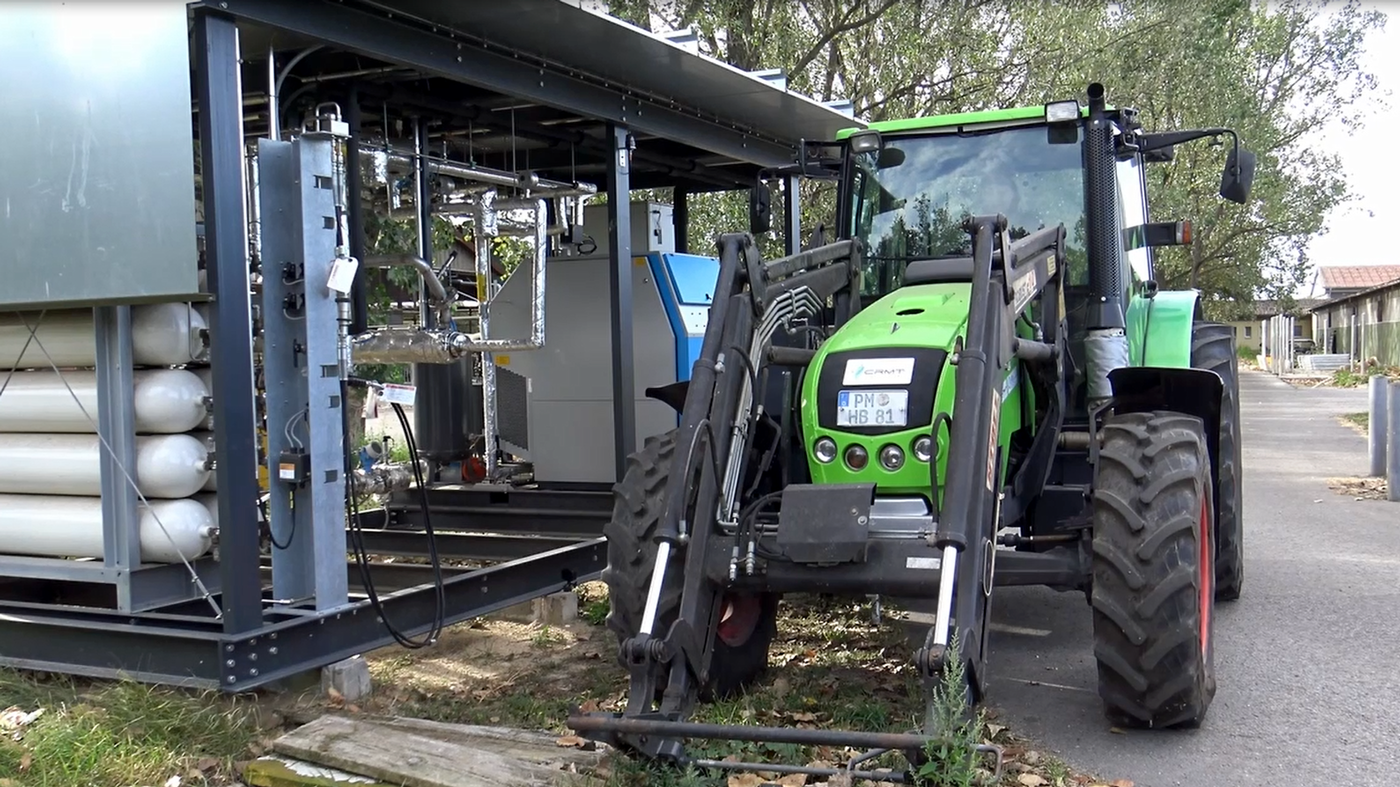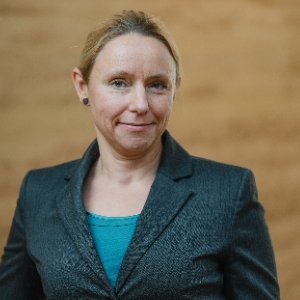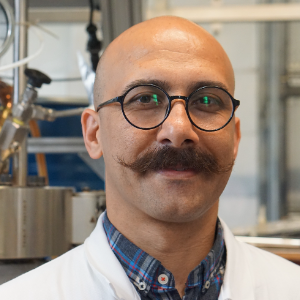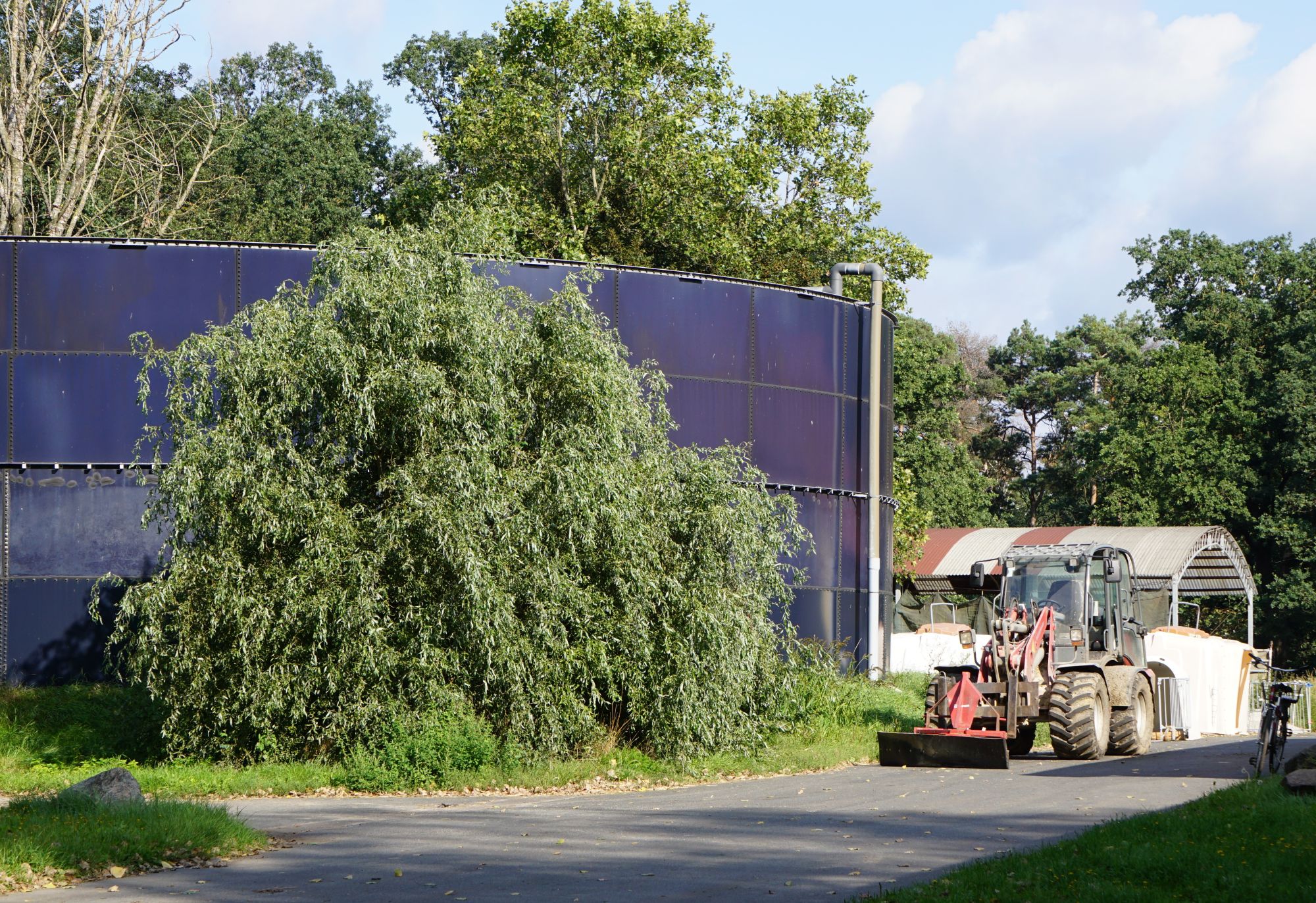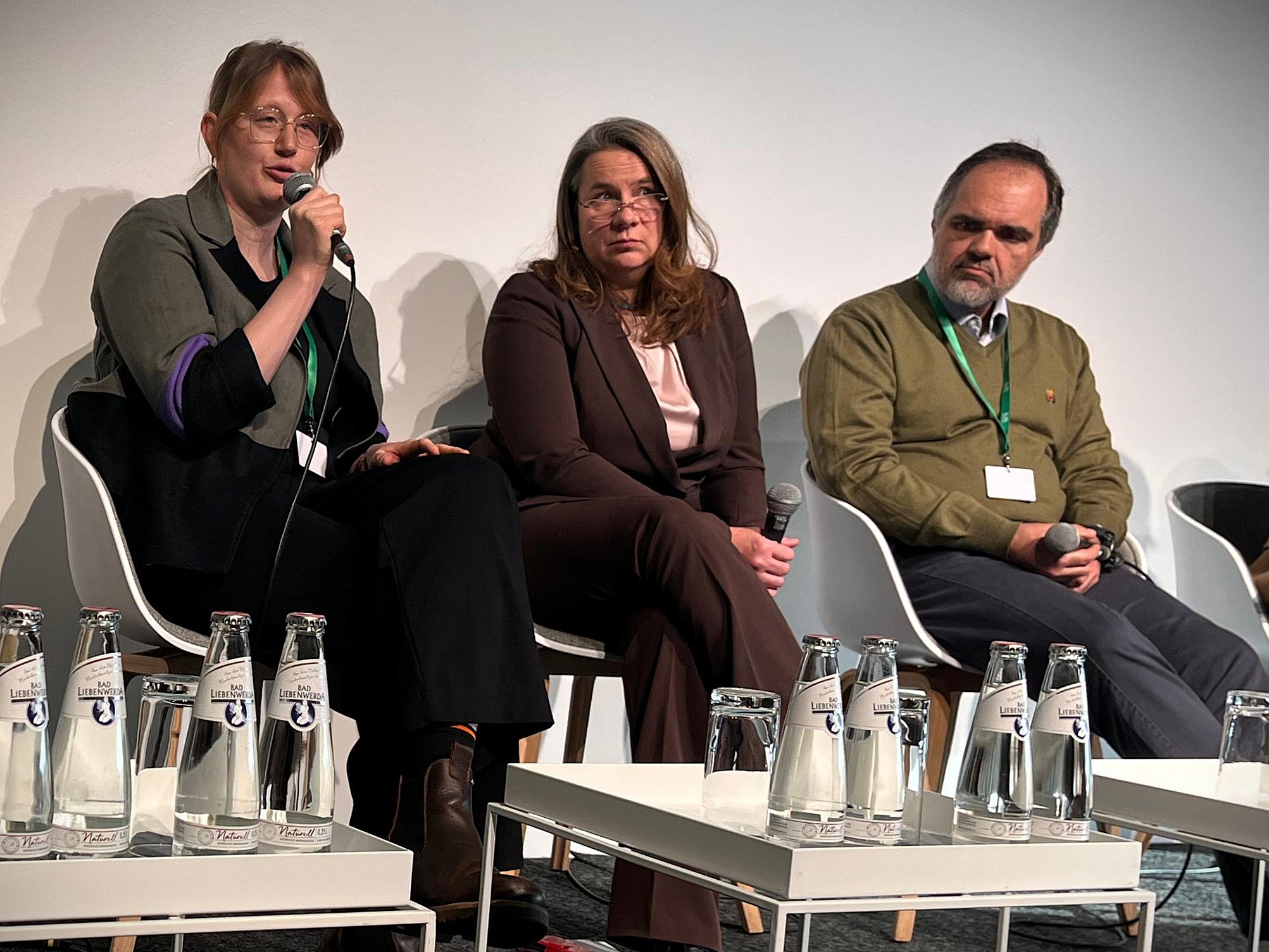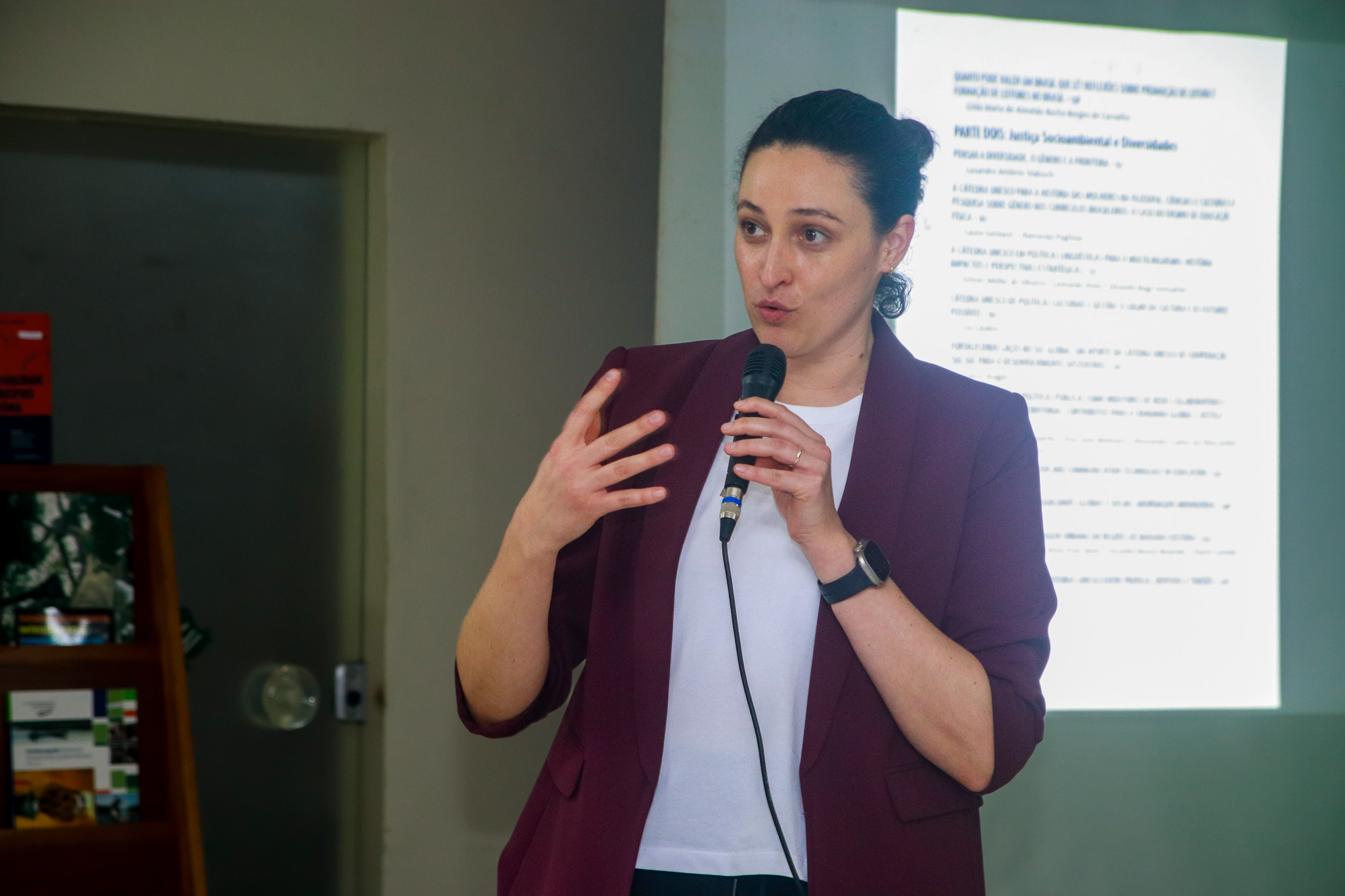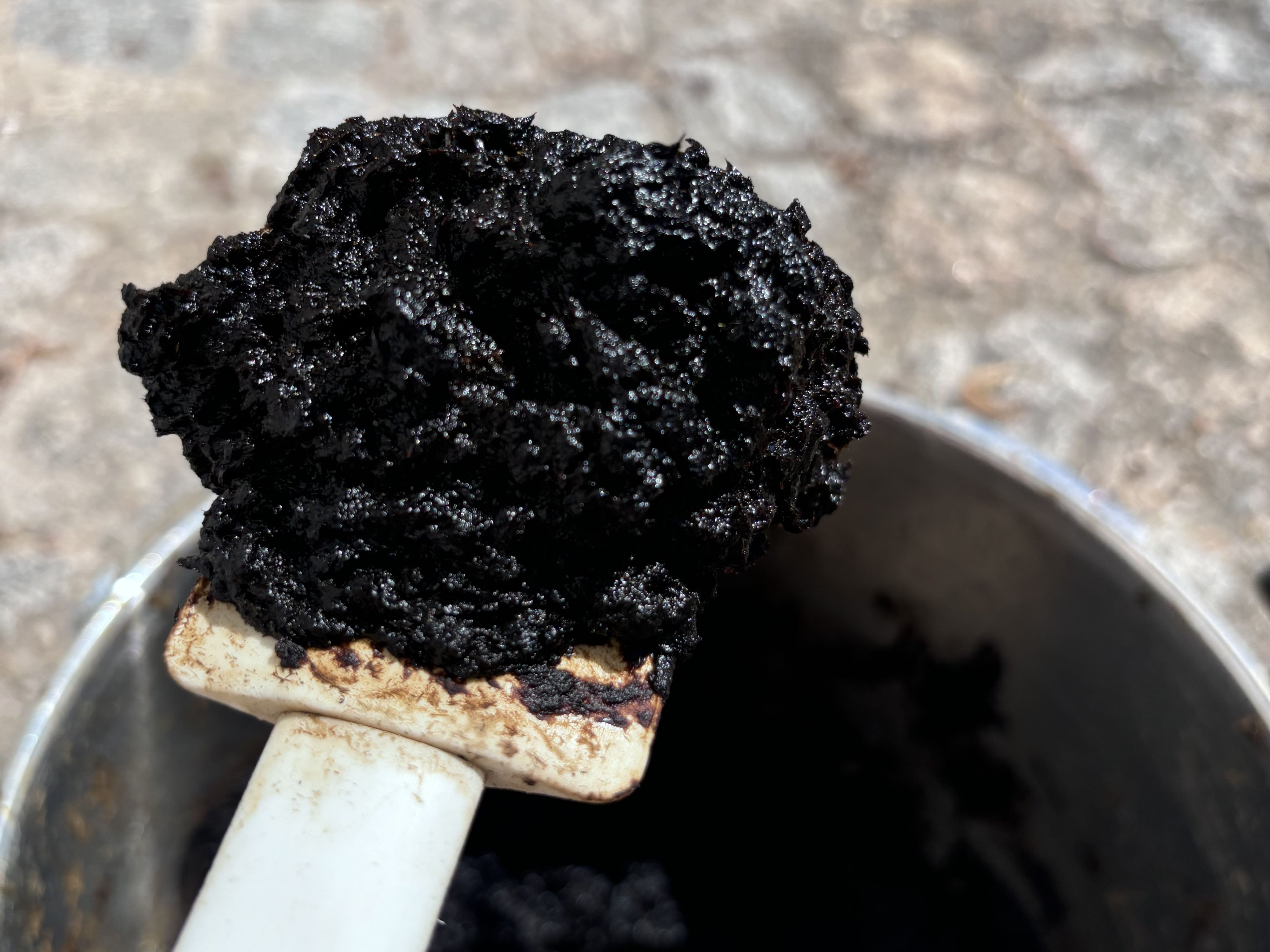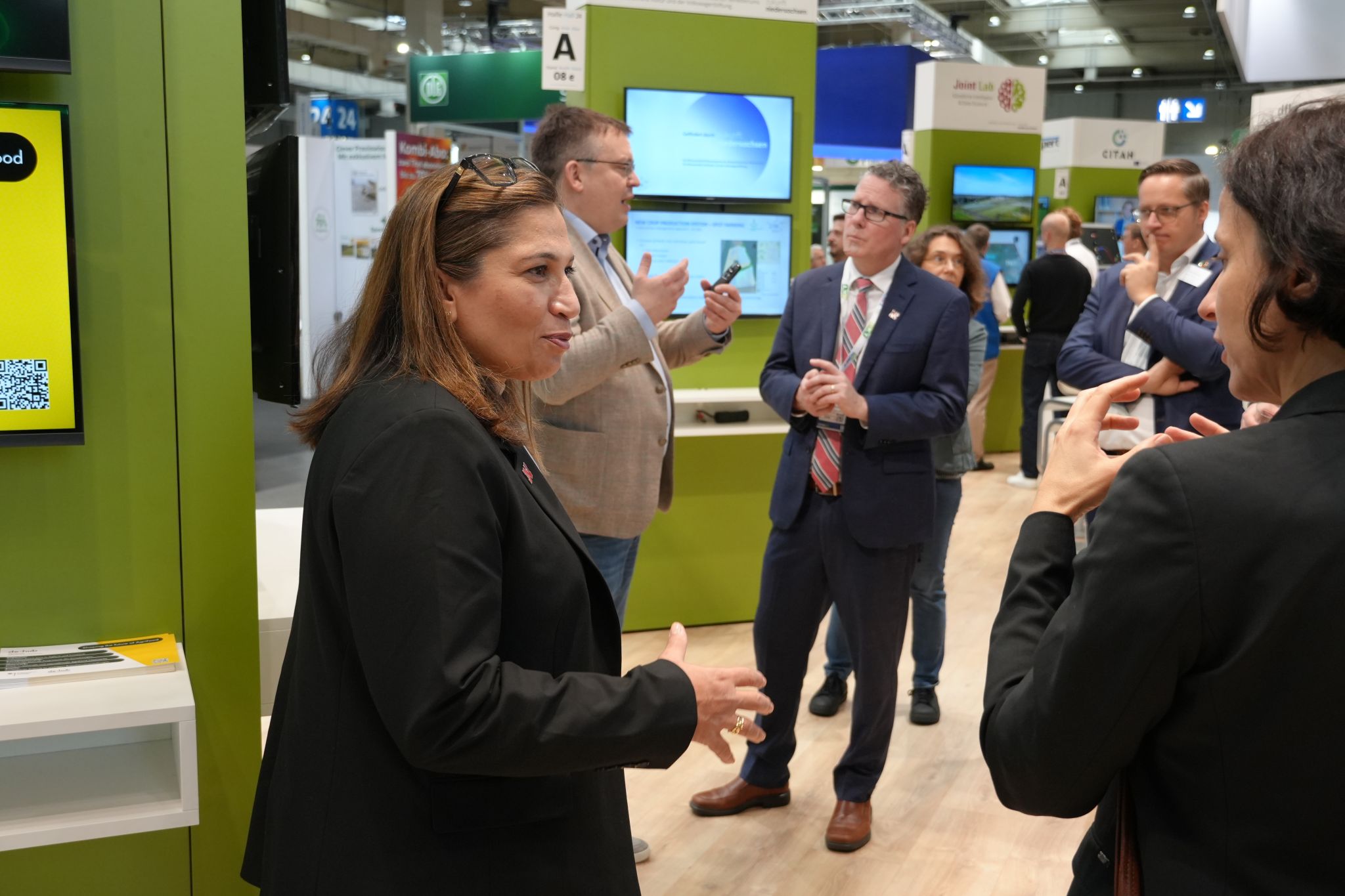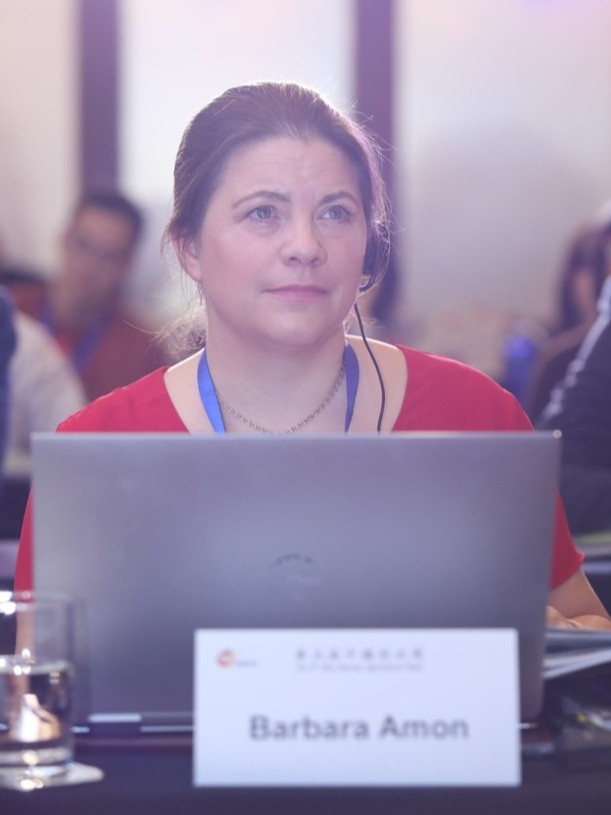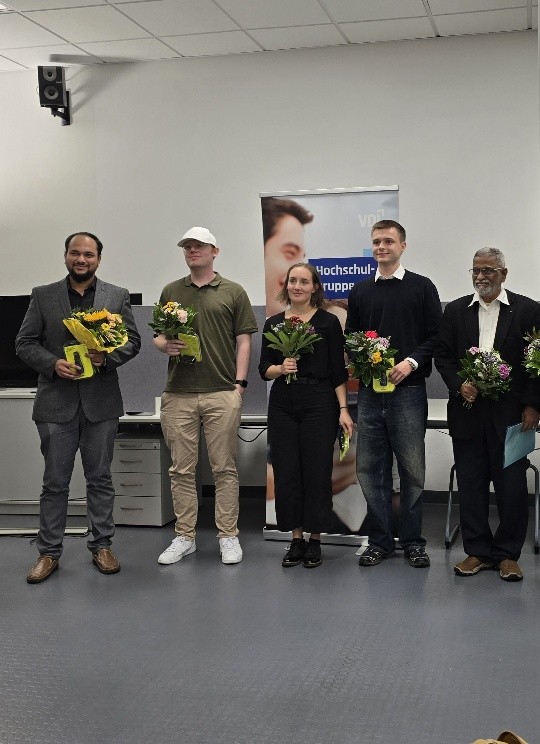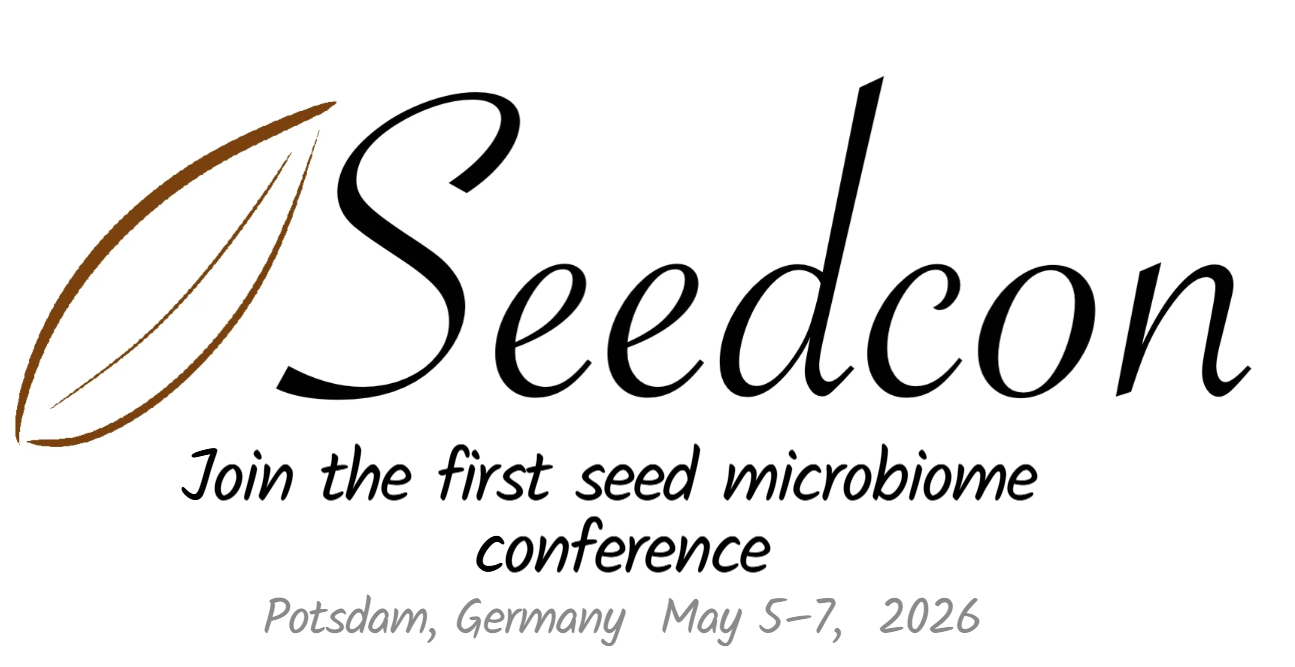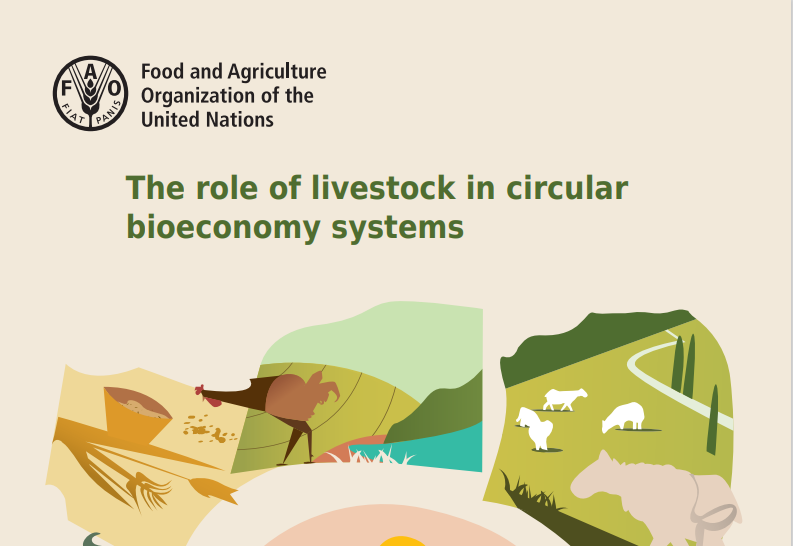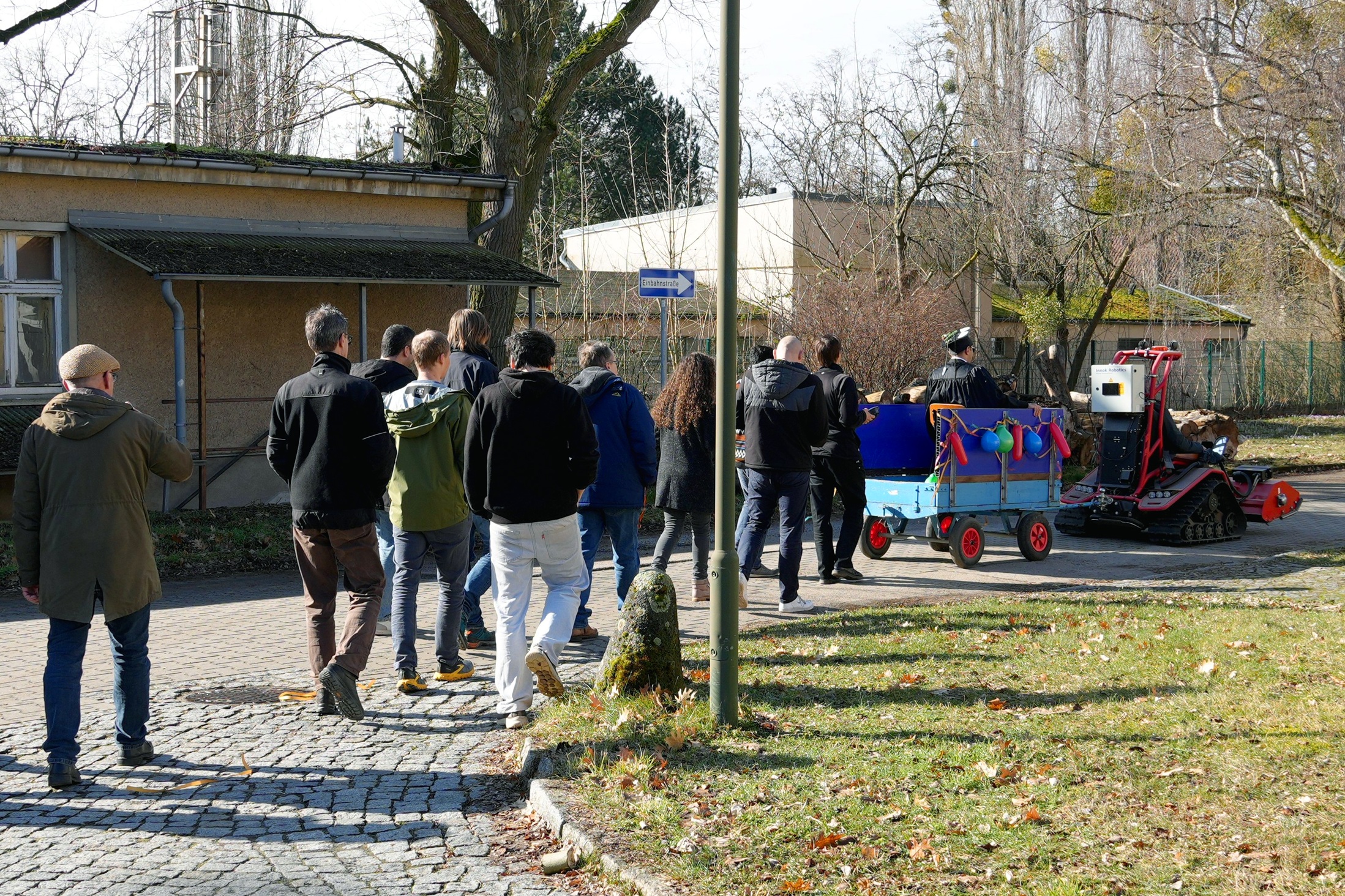Utilizing residues and closing the loop
The programme area bundles research activities on biogas as well as on carbonized biomass such as biochar and humic substances. Residual biomass that might otherwise not be used can thus be used to produce energy sources as well as to improve the soil. Our aim is to further develop and specify the processes of both biological and thermo-chemical conversion of biomass. Both areas constitute an integral part of the circular bioeconomy.
Residuals can originate from animal husbandry systems (program area "Individualized Animal Husbandry"), food production systems (PB "Diversified Crop Production" and "Healthy Foods") as well as from biomaterial production lines (PB "Multifunctional Biomaterials") and also include waste and wastewater from municipalities. One research task is to deal with residual materials of suboptimal, heterogeneous and fluctuating composition and to minimize risks such as the spread of pathogens and pollutants by means of the processes.
Biological and thermo-chemical conversion processes for biogas, hydrochar, humic substances, as well as lactic or succinic acid (program area 'Multifunctional Biomaterials') take place in more or less closed systems. In order to obtain more information about these conversion processes, we are creating models of the processes based on spectral analyses as a prerequisite for future work on digital twins.
In addition to basic research in our specialized, well-equipped laboratories (biogas laboratory, biochar laboratory), we transfer our research approaches to practice. The complexity of the interactions between char-based products, soils, plants and microorganisms requires close, inter- and multidisciplinary cooperation. As a reallab, the Leibniz Innovation Farm offers an ideal platform for this.
Biogas
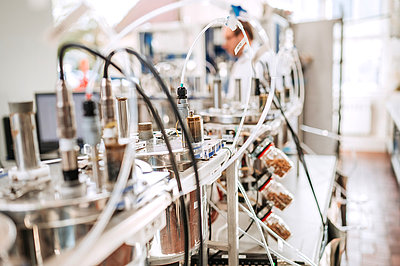
It is challenging to work efficiently with inhomogeneous feedstocks and feedstocks from different sources that are difficult to ferment. Our focus is on liquid manure, lignocellulosic biomass from landscape management, paludiculture and stalk material. Our objective is to further develop the biogas process in such a way that, despite temporal, qualitative and quantitative variations in the feedstock, the fermentation process is stable with low breakdown susceptibility. In the future, biogas plants should operate in a knowledge-based, information-driven and largely automated manner. To achieve this goal, we are modeling the biogas process as a digital twin.
Improved understanding of the highly sensitive fermentation process, in particular the development of microorganisms, provides the basis needed for this. Microorganisms form microbiomes in the fermenter, complex microbial communities that differ depending on the feedstock, pH, temperature and the timing of the fermentation process. We identify the microorganisms involved in the process at the species level (taxonomic diversity) and determine their metabolic potential (functional diversity).
The broad spectrum of these tasks requires multidisciplinary research from the fields of microbiology and molecular ecology, data science, agricultural and environmental sciences, among others.
Biochars and humic substances
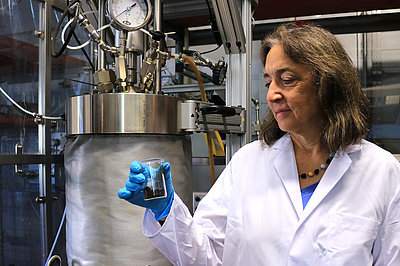
Our research on thermo-chemical conversion of biomass is focused on pyrolysis (for dry feedstock) and hydrothermal carbonisation (moist material). Thermo-chemical treatment can carbonise both lignified and non-lignified biomasses into biochar, protecting them from rapid microbial degradation. The carbon stored in these materials is sequestered. If the process of hydrothermal carbonisation takes place at low pH, the end product is a solid biochar. At higher pH values, humic substances are formed. Both processes, pyrolysis and hydrothermal treatment, have the potential to process raw and residual materials and they can be integrated into agricultural production systems.
With our research in the biochar lab, we are investigating how chars from pyrolysis and hydrothermal carbonisation (HTC) can be used, for example, for carbon sequestration and soil melioration. In order to be able to design the processes efficiently for specific applications in agriculture and environmental protection, it is important to understand the kinetics of thermo-chemical conversion. Against this background, we are investigating the influence of operating and material parameters on process and product. Another research focus is on the effects of pyrochar, hydrochar and humic substances on plant growth and microbial life in the soil. In addition, we are investigating the influence of the use of chars/humic substances on the water storage capacity of the soil, carbon sequestration and emissions.
To the team of the programme area
Research projects
-
LiGNUM bridges scientific innovation and industry by developing a sustainable bioprocess to convert lignin-based side streams into valuable six- and fivecarbon platform chemicals. Using tailored microbial strains, the pr…
-
Malaysia is the world’s second-largest producer of crude palm oil (PO) with 17.32 million tonnes produced in 2017, which serves as the primary feedstock for biofuel production. However, the PO industry faces unsustainabl…
-
This project investigates systemic innovation pathways for the material and energetic valorisation of agricultural residues and by-products. The focus lies on the practical implementation of these approaches in a designa…
-
Functional integration in composite materials enables more cost-effective, resource-efficient, lighter and more reliable components and systems. One major disadvantage is the difficulty of recycling due to the multi-mate…
-
The aim of the project is to reduce nitrous oxide (N2O) and ammonia (NH3) emissions (N-emissions) in field vegetable production, mainly from crop residues with a high nitrogen (N) content. Removal of residues from the fi…
More projects within the programme area
Publications of the programme
- Mekonen, T.; Delele, M.; Gizaw, A.; Endeshaw, M.; Kebede, N.; McAuley, K. (2026): Key challenges in CFD modeling of biomass gasification in fluidized-bed reactors: A review. Biomass & Bioenergy. (Juni 2026): p. 108893. Online: https://doi.org/10.1016/j.biombioe.2025.108893 1.0
- Sarlaki, E.; Ghafarian Nia, S.; Hu, S.; Marzban, N.; Ischia, G.; Jia, M.; Rezaei, M.; Ahmadi, M.; Mohammad Javaheri, P.; Malekian, A.; Tabatabaei, M.; Aghbashlo, M. (2026): Progress and challenges in thermochemical technologies for biomass humification: A comprehensive review. Renewable & Sustainable Energy Reviews. (May 2026): p. 116775. Online: https://doi.org/10.1016/j.rser.2026.116775 1.0
- Marzban, N.; Sarlaki, E. (2026): Can hydrothermal biomass processing serve as an analogue of millennia-scale natural carbon maturation? A unified perspective on carbonisation, humification, and fulvification. Planetary Sustainability. (1): p. 22-47. Online: https://journal.umt.edu.my/index.php/planetsust/article/view/880 1.0
- Shafizadeh, A.; Khounani, Z.; Shahbeik, H.; Mohammad Javaheri, P.; Sajadi, S.; Golvirdizadeh, M.; Tajuddin, S.; Marzban, N.; Abdul Razak, N.; Tabatabaei, M.; Aghbashlo, M. (2026): Leveraging machine learning for sustainable biochar and hydrochar production: Advances, challenges, and perspectives in thermochemical processes. Renewable & Sustainable Energy Reviews. (May 2026): p. 116819. Online: https://doi.org/10.1016/j.rser.2026.116819 1.0
- Ghobadian, S.; Ischia, G.; Romero Romero, O.; Rossi, G.; Hoffmann, T.; Kraume, M.; Marzban, N. (2026): Hydrothermal Humification and Fulvification of Grass for Artificial Humic Substance Production and By-product Applications. Environmental Technology & Innovation. : p. 104836. Online: https://doi.org/10.1016/j.eti.2026.104836 1.0
- Hahn, J.; Müller, J.; Heiermann, M. (2025): Seed Survival in Silage: Reviewing 90 Years of Research. Plants. (3): p. 351. Online: https://doi.org/10.3390/plants14030351 1.0
- Ding, Z.; Grundmann, P. (2025): Understanding system interdependencies in sustainable paper production from residue grass biomass: Insights from fuzzy cognitive mapping. Scientific Reports. : p. 0. Online: https://doi.org/10.1038/s41598-024-84358-4 1.0
- Klebs, C.; Malchow, R.; Ettinger, J.; Dalichow, J.; Schneider, R.; Venus, J.; Pleissner, D. (2025): Utilization of acid whey and oat pomace in succinic acid fermentation:. New Biotechnology. (May 2025): p. 31-38. Online: https://doi.org/10.1016/j.nbt.2025.01.007 1.0
- Mohammadi, P.; Dang, H.; Román, S.; Duman, G.; Akdeniz, R.; Kömekçi, F.; Nik Ghazali, N.; De Tender, C.; Kulli, B. (2025): Can biomass-derived chars serve as a viable alternative to commercial inorganic fertilizers?. Biofuel Research Journal. (1): p. 2350-2372. Online: https://doi.org/10.18331/BRJ2025.12.1.5 1.0
- Marzban, N.; Psarianos, M.; Herrmann, C.; Schulz-Nielsen, L.; Olszewska-Widdrat, A.; Arefi, A.; Pecenka, R.; Grundmann, P.; Schlüter, O.; Hoffmann, T.; Rotter, V.; Nikoloski, Z.; Sturm, B. (2025): Smart integrated biorefineries in bioeconomy: A concept toward zero-waste, emission reduction, and self-sufficient energy production. Biofuel Research Journal. (1): p. 2319-2349. Online: https://doi.org/10.18331/BRJ2025.12.1.4 1.0
More publications of the programme area

